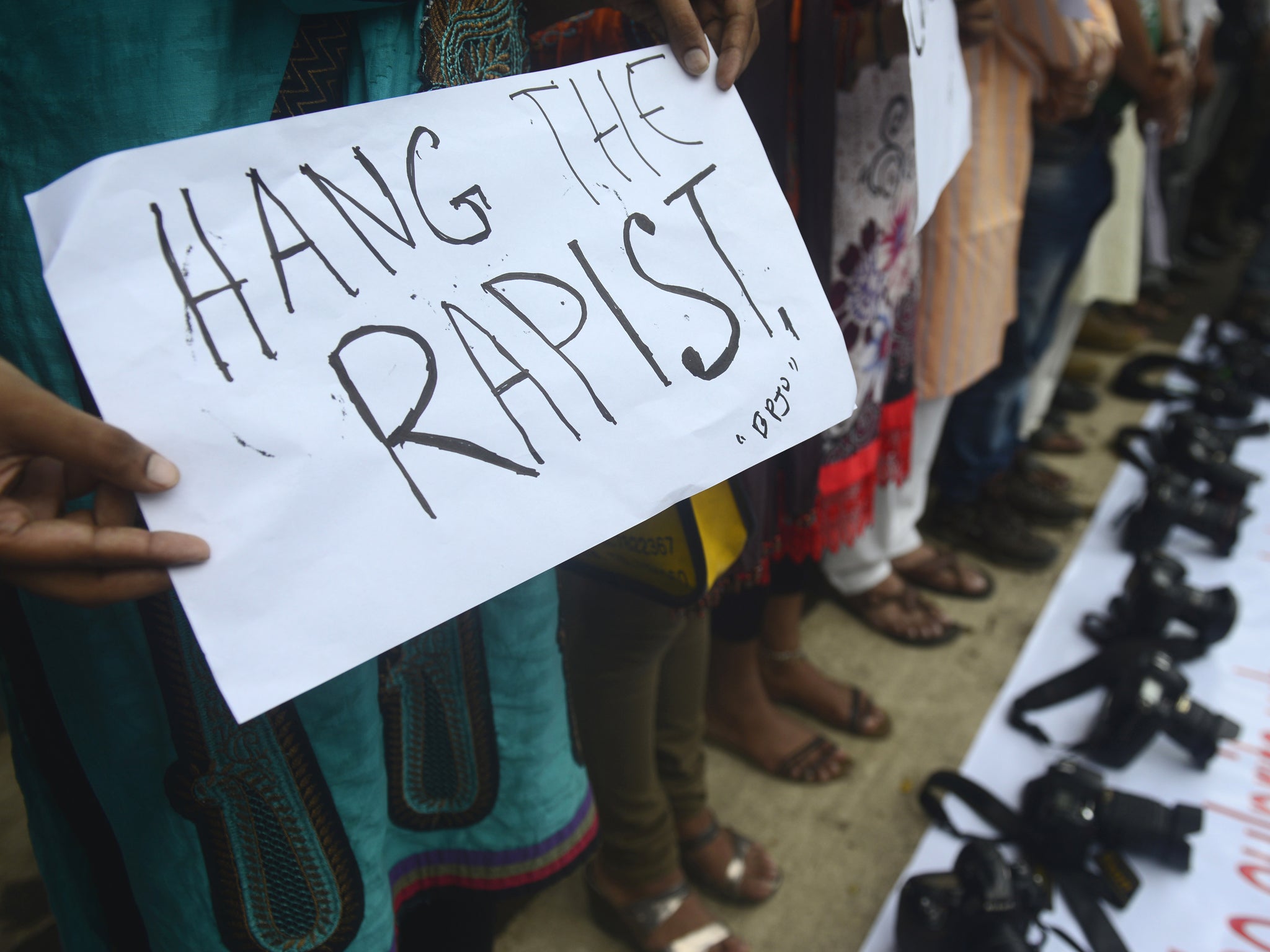Almost a quarter of men in some Asian countries 'admit rape'
Startling results after 10,000 men in Bangladesh, China, Cambodia, Indonesia, Sri Lanka and Papa New Guinea were interviewed

Your support helps us to tell the story
From reproductive rights to climate change to Big Tech, The Independent is on the ground when the story is developing. Whether it's investigating the financials of Elon Musk's pro-Trump PAC or producing our latest documentary, 'The A Word', which shines a light on the American women fighting for reproductive rights, we know how important it is to parse out the facts from the messaging.
At such a critical moment in US history, we need reporters on the ground. Your donation allows us to keep sending journalists to speak to both sides of the story.
The Independent is trusted by Americans across the entire political spectrum. And unlike many other quality news outlets, we choose not to lock Americans out of our reporting and analysis with paywalls. We believe quality journalism should be available to everyone, paid for by those who can afford it.
Your support makes all the difference.A survey has revealed the extent of sexual violence in some parts of Asia after almost a quarter of men admitted committing rape.
Rape was common within relationships but about one in 10 men in some parts admitted raping a woman who was not their partner, according to a UN report which is the first large study of rape and sexual violence.
The startling results came after 10,000 men in Bangladesh, China, Cambodia, Indonesia, Sri Lanka and Papa New Guinea were interviewed.
"It's clear violence against women is far more widespread in the general population than we thought," said Rachel Jewkes of South Africa's Medical Research Council, who led the two studies.
Researchers said their findings should change perceptions about how common violence against women is and prompt major campaigns to prevent it. Previous studies of rape have been done in South Africa, where nearly 40 percent of men are believed to have raped a woman.
The authors said sexist attitudes in the six countries contributed to the results, but that other factors were also contributed to men's violent behaviour. Men who had themselves suffered violence as children, especially sexual abuse were more likely to have committed rape.
The researchers also said the findings do not represent the whole Asia and Pacific region.
In Papua New Guinea, 62 per cent of men surveyed admitted forcing a woman to have sex. Rape was least common in urban areas of Bangladesh with 9.5 per cent of men admitting the offence whilst 14.1 per cent did so in rural areas.
A previous report from the World Health Organization found one third of women worldwide say they have been victims of domestic or sexual violence.
The research was paid for by several United Nations agencies and Australia, Britain, Norway and Sweden. The papers were published online today in the journal, Lancet Global Health.
The word "rape" was not used in the questions, but the men were asked if they had ever forced a woman to have sex when she wasn't willing or if they had ever forced sex on someone who was too drunk or drugged to consent.
The lowest rates were in Bangladesh and Indonesia and the highest were in Papa New Guinea.
Of those who acknowledged forcing a woman to have sex, nearly 75% of said they did so because they felt sexually entitled. Nearly 60 percent said they were bored or wanted to have fun while about 40 percent said it was because they were angry or wanted to punish the woman. Only about half of the men said they felt guilty and 23 percent had been imprisoned for a rape.
"The problem is shocking but anyplace we have looked, we see partner violence, victimisation and sexual violence," said Michele Decker, an assistant professor at Johns Hopkins Bloomberg School of Public Health, who co-wrote an accompanying commentary. "Rape doesn't just involve someone with a gun to a woman's head," she said. "People tend to think of rape as something someone else would do."
"It's not enough to focus on services for women," said Charlotte Watts, head of the Gender, Violence and Health Centre at the London School of Hygiene and Tropical Medicine, who was not part of the study. She said some programs in Africa based on challenging traditional ideas of masculinity are proving successful.
"It may be that the culture where they grew up condones violence, but it's not impossible to change that," she said.
Join our commenting forum
Join thought-provoking conversations, follow other Independent readers and see their replies
Comments